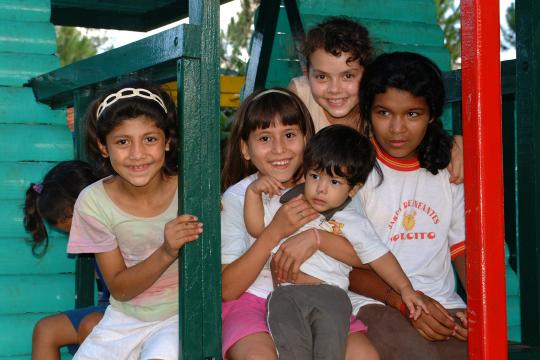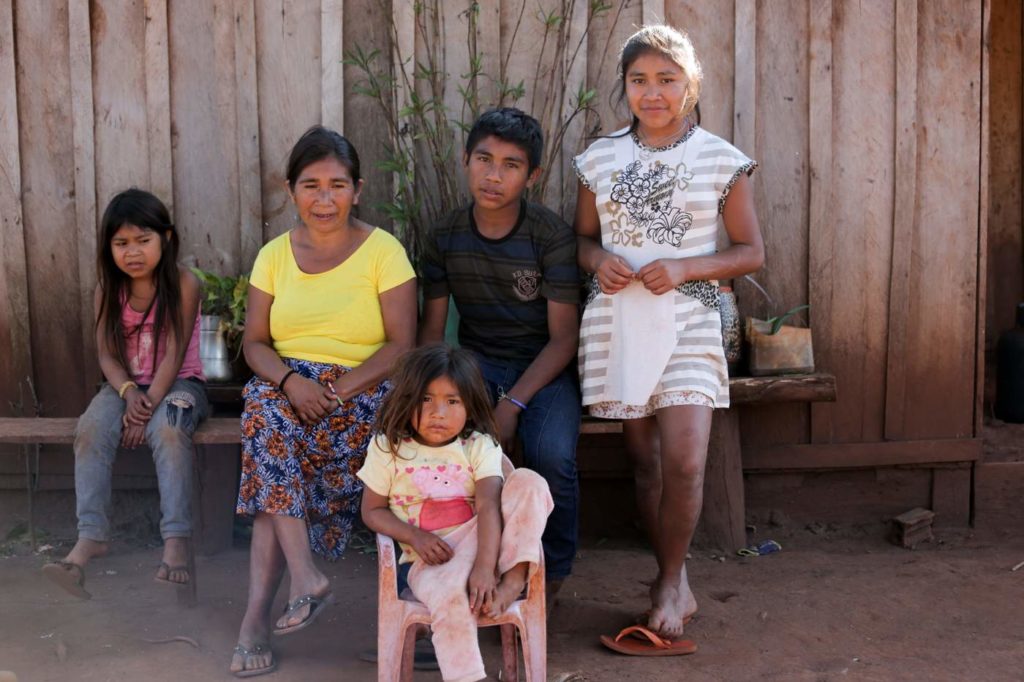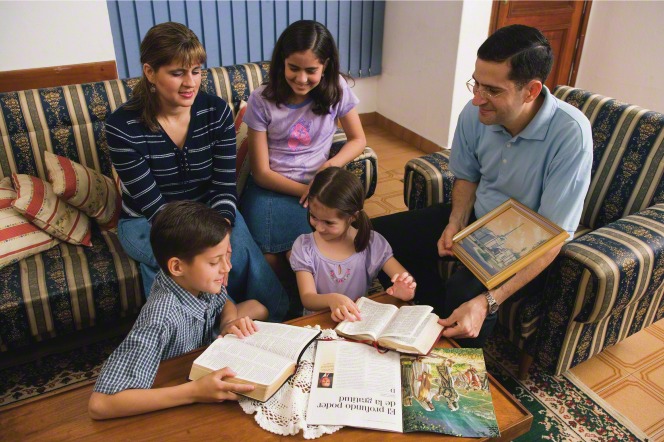The majority of people in Paraguay live in a family consisting of a married couple together with their children, although there are an increasing number of households which contain a single woman and her children. It’s rare to see extended family households although some affluent urban families occasionally give a home to children of poorer relatives.
The father is the head of the family and expects to be treated with respect by all other family members, while the mother’s responsibilities include managing the household, looking after the children and, more often than not, working outside the home too.
Marriage
The influence of the Roman Catholic Church is very strong in Paraguay and so although civil, church and consensual unions are allowed, most marriages tend to take place in church. For the same reason, divorce is rare so couples often stay together despite the fact that their relationship has almost broken down. Paraguay also has many consensual unions and a high illegitimacy rate and the extramarital behaviour of men is often ignored so long as it doesn’t affect the security of the family, although women are expected to conform and remain faithful.
Family Networks
Although the Paraguayans do not live in extended family units, the idea of strong family ties both within the immediate family unit and the extended kin is very important to their social wellbeing. Families will often ask their kin to give them support and assistance when times get tough. Wealthy individuals who aspire to make their way in the political arena will often call on their extended kin to give support and weight to their political ambitions.
The Importance of Godparents
This idea of kin extends beyond the ties of birth and marriage but also includes those ties which are created by becoming godparents. When agreeing to become a godparent they automatically accept the responsibilities towards their godchildren and the expectation that they will help to assist their godchildren in all manner of ways including financial. These ties go way beyond the relationship with the godchild though, the ties to the godchild’s parents become just as strong if not stronger, lasting even if the godchild should die.
Generally speaking, parents will choose godparents who are at least their social equal although poorer families will often invite more influential people to become godparents for their children. Godchildren are also expected to show respect to their godparents, just as they would to their parents.
Life as a Child

Paraguayans of all ages just love babies and tend to shower them with attention. If a baby starts to cry it will be picked up and comforted by the person nearest to them, whether that’s an adult or older child. Rather than putting their babies in pushchairs or slings, mothers will carry their infant in their arms and although the use of playpens and cots are becoming increasingly popular amongst the urban middle and upper classes, generally mothers will put their babies on the floor to play or lie them on a bed to sleep.
In middle class and upper class families the children tend to be indulged and spend their childhood either at school studying or playing at home. However those children born into poor urban or rural families have no such luxury as they are expected to work from a very early age, often assisting in the fields, in the house and in looking after their younger siblings. Occasionally young children will be sent out to work on the streets selling all manner of items. They are controlled through physical discipline, the threat of physical punishment being commonplace.
Life at School
The formal system of education in Paraguay consists of six years of primary school followed by a further six years at secondary level school, with primary schooling being compulsory once the child reaches the age of six. However there are not enough primary schools to accommodate all the children, particularly in the rural areas and, although poor families do see the value in education, often their children’s attendance at school is sporadic as they have to drop out in order to go out to work. Even towards the end of the 20th century only 34% of secondary school age children attended school.
University degrees are highly prized as both an important way to gain social prestige but more importantly to gain access to higher status jobs, however this level of education is only available for an extremely small proportion of the population.
Social Greetings

The way in which Paraguayans greet each other will vary according to their social class, their gender and their level of familiarity or intimacy. Generally upper class and middle class women will greet their social equals by kissing them on the cheek, whether they already know each other or this is their first meeting. This doesn’t apply in business situations however.
Male and female acquaintances will also use this same kind of greeting. However men of all social classes use the handshake when in a formal situation. These gestures will be repeated when the meeting is over.


